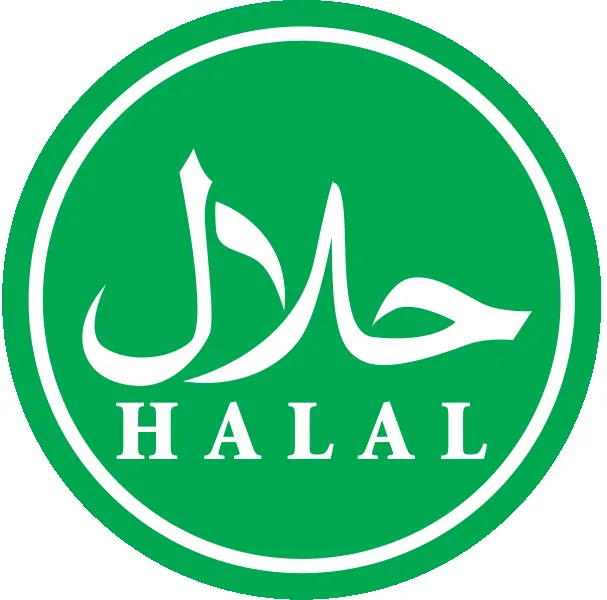Is E621 Halal or Haram?
E621, also known as Monosodium Glutamate (MSG), is considered halal if derived from plant-based sources or halal-certified production processes. However, it may be deemed haram if derived from or contaminated by non-halal animal products. Checking halal certifications is crucial for clarity.

E621, also known as Monosodium Glutamate (MSG), is considered halal if derived from plant-based sources or halal-certified production processes. However, it may be deemed haram if derived from or contaminated by non-halal animal products. Checking halal certifications is important for clarity.
What is E621 (Monosodium Glutamate)?
Monosodium Glutamate (MSG), labeled as E621 in the food industry, is a sodium salt of glutamic acid. It is widely used to enhance the savory flavor of processed and packaged foods such as snacks, soups, frozen meals, and sauces.
MSG enhances the umami taste—a savory profile that complements sweet, salty, bitter, and sour flavors.
Key Points About MSG (E621):
- Chemical Name: Monosodium Glutamate
- Food Additive Code: E621
- Primary Use: Flavor enhancer
- Source Materials: Plant-based (e.g., sugarcane, corn) or animal-based enzymes
- Forms: Crystalline powder or granules
- Usage: Found in chips, instant noodles, canned foods, and fast food.
Halal and Haram in Islamic Dietary Laws
To determine whether E621 is halal or haram, it is essential to understand Islamic dietary laws:
- Halal: Foods or ingredients permissible under Islamic law.
- Haram: Foods forbidden by Islamic law, such as pork, alcohol, or improperly slaughtered animals.
- Mashbooh: If the source or production process is uncertain, it is labeled as doubtful until clarified.
Factors Determining Whether E621 is Halal or Haram
1. Source of Ingredients
The permissibility of E621 depends on its origin:
- Plant-Based Sources:
MSG derived from fermented plant products like sugarcane, sugar beets, or corn is generally halal. - Animal-Based Sources:
If enzymes from non-halal animals (e.g., pork) are used in the fermentation process, the MSG is haram.
2. Manufacturing Process
- MSG is primarily produced through a fermentation process, which converts natural sugars into glutamic acid.
- If the fermentation process involves halal-certified substances, the product is considered halal.
- Cross-contamination with non-halal substances during manufacturing or transportation can render it haram.
3. Halal Certification
Halal-certified MSG ensures compliance with Islamic dietary laws:
- Look for certifications from recognized authorities like JAKIM, MUI, or HFA.
- Certified MSG products provide assurance of halal compliance.
4. Cross-Contamination Risks
Production plants that also process non-halal substances might lead to cross-contamination. For strict halal compliance:
- Ensure the product is processed in dedicated halal-certified facilities.
- Avoid uncertified products from countries with loose halal regulations.
Sources of MSG and Their Halal Status

| Source | Example | Halal Status | Explanation |
|---|---|---|---|
| Plant-Based | Corn, sugarcane, sugar beet | Halal | Naturally fermented without haram substances. |
| Halal Animal-Based | Halal-slaughtered cattle | Halal | Meets Islamic slaughter requirements. |
| Non-Halal Animal-Based | Pork, non-halal beef | Haram | Derived from haram sources or improper slaughtering. |
| Cross-Contaminated | Shared facilities | Mashbooh (Doubtful) | May contact haram products during processing. |
| Artificial Sources | Synthetic chemicals | Halal, if certified |
Depends on chemical purity and production standards.
|
Common Foods Containing E621
MSG (E621) is prevalent in processed foods. Below are examples categorized by their halal status:
Halal Foods Containing MSG:
- Instant noodles with halal certification.
- Snacks like potato chips from halal-certified brands.
- Canned vegetables and soups with verified halal status.
Haram or Doubtful Foods Containing MSG:
- Packaged soups or noodles containing pork or non-halal animal fats.
- Fast food items prepared without halal certification.
- Imported snacks with unknown MSG production sources.
Health Concerns About MSG
While MSG is widely used, there are health concerns and misconceptions associated with it:
Is MSG Harmful?
MSG is recognized as safe by food regulatory authorities, including:
Potential Side Effects
Some people may experience mild reactions to MSG, including:
- Headaches
- Nausea
- Flushing
- Sweating (often called "Chinese Restaurant Syndrome")
How to Verify if E621 is Halal?
1. Check Packaging Labels
- Look for halal certification symbols.
- Avoid products with ambiguous sources of E621.
2. Research the Manufacturer
- Investigate the manufacturer's production process.
- Contact customer service for detailed sourcing information.
3. Consult Reliable Halal Authorities
- Use resources such as Halal Certification Boards or online platforms like Halal Advisor.
- Check halal food directories for verified products.
4. Seek Guidance from Islamic Scholars
If uncertain, seek advice from trusted Islamic scholars who specialize in dietary rulings.
FAQs About E621 and Halal Status
1. Can MSG be halal if it comes from animals?
Yes, if derived from animals slaughtered according to Islamic law and certified by halal authorities.
2. Are there vegetarian alternatives to MSG?
Yes, plant-based flavor enhancers like yeast extract or natural umami-rich foods like mushrooms and tomatoes are halal and MSG-free.
3. What are the risks of consuming non-halal MSG unknowingly?
Unintentional consumption of haram ingredients is excused in Islam, but it is advisable to avoid products with doubtful origins.
What's Your Reaction?















